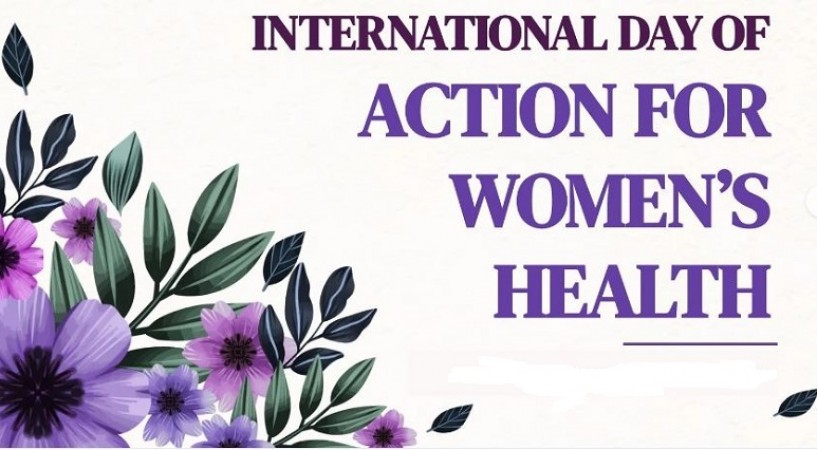
The International Day of Action for Women's Health is a global observance held annually on May 28th. It serves as a powerful platform to raise awareness about women's health rights, promote gender equality, and advocate for accessible and comprehensive healthcare for women worldwide. The day is marked by various activities, events, and campaigns aimed at highlighting the challenges faced by women in achieving optimal health and well-being. In conjunction with this important occasion, the International Festival on Women's Health is celebrated, bringing together individuals, organizations, and communities to foster dialogue, education, and action.
History and Significance: The International Day of Action for Women's Health was established in 1987 during a meeting of women's health advocates and activists in Costa Rica. It emerged as a response to the growing recognition of the gender disparities in healthcare and the need for concerted efforts to address these inequalities. Since then, it has evolved into a global movement that recognizes the fundamental human right of women to access quality healthcare services without discrimination, coercion, or violence.
The International Festival on Women's Health, held concurrently with the Day of Action, provides a unique platform for women's health advocates to come together, share knowledge, and celebrate achievements. It aims to amplify the voices of women, promote gender-sensitive healthcare policies, and showcase innovative initiatives that empower women in making informed decisions about their health and well-being.
Objectives of the International Day of Action and Festival: Raise Awareness: The day seeks to raise awareness about the specific health challenges faced by women globally, including maternal health, reproductive rights, gender-based violence, and mental health. It sheds light on the social, economic, and cultural factors that influence women's access to healthcare services.
Advocate for Women's Rights: The International Day of Action for Women's Health serves as a platform for advocacy, urging governments, policymakers, and healthcare providers to prioritize women's health needs and ensure the provision of equitable and comprehensive services. It calls for the elimination of discriminatory practices and the protection of reproductive rights.
Empower Women: The day emphasizes the importance of empowering women to make informed decisions about their health and well-being. It promotes access to accurate information, education, and resources, enabling women to take charge of their reproductive health choices and overall wellness.
Strengthen Partnerships: The International Festival on Women's Health fosters collaborations among diverse stakeholders, including governments, civil society organizations, healthcare professionals, and individuals. It encourages the exchange of best practices, research findings, and innovative strategies to address women's health challenges effectively.
Celebrating the International Day of Action and Festival: The International Day of Action for Women's Health and the accompanying festival are celebrated through a wide range of activities and events worldwide. These include:
Panel Discussions and Workshops: Experts, activists, and healthcare professionals come together to participate in panel discussions and workshops on various women's health topics. These platforms provide an opportunity for knowledge sharing, capacity building, and community engagement.
Health Screenings and Awareness Campaigns: Free or low-cost health screenings, such as breast and cervical cancer screenings, are organized to promote early detection and prevention. Awareness campaigns are conducted to educate women about self-care, reproductive health, family planning, and disease prevention.
Art Exhibitions and Performances: Creative expressions, such as art exhibitions, theater performances, and spoken word events, are organized to explore the intersection of women's health, rights, and social justice. These artistic endeavors play a vital role in challenging societal norms and promoting inclusive dialogue.